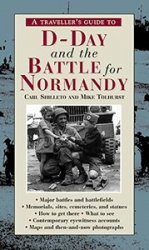A book of the Hebrew old Testament that contains references to major invasions of Palestine by Mesopotamian realms as well as to the fall of one of the most formidable of them—the Assyrian Empire. The identity of the author of the book is unclear. If he was a real person, he likely traced his ancestry back to Hezekiah, a ruler of the Hebrew kingdom of Judah. On the other hand, some scholars suggest that someone else wrote the book and used the name of Zephaniah rather than his own. The period in which the book was written is also a matter of dispute. The most accepted theory is that it dates from the early seventh century b. c. Supporting this view is the fact that it mentions Assyria’s invasion of Palestine in the second half of the preceding century. (The Assyrians destroyed the kingdom of Israel in the 720s B. C. They also invaded Judah a few years later but were unable to bring it down.) The author, awed by these dire, seemingly earth-shaking events, perhaps understandably placed them in the same sort of apocalyptic framework that appears in Genesis when God causes the great flood to punish humanity for its sins. According to Zephaniah, God proclaimed:
I will stretch out my hand against Judah, and against all the inhabitants of Jerusalem. And I will cut off from this place the remnant of Baal [a heathen idol] and the name of the idolatrous priests, those who have. . . . turned back from following the Lord.
... I will search Jerusalem with lamps and I will punish the men. . . who say in their hearts, “The Lord will not do good, nor will he do ill.” (Zephaniah 1.4-6, 12)
In contrast, some scholars think that the book of Zephaniah was written later, perhaps as late as 300 or even 200 b. c. Part of this argument rests on the fact that the author mentions the destruction of the Assyrian Empire, at one point in the past tense, which occurred more than a century after Assyria destroyed Israel:
And he [God] will stretch out his hand against the north and destroy Assyria. And he will make [the Assyrian capital of] Nineveh a desolation, a dry waste like the desert. .. . What a desolation she [Assyria] has become.
... Everyone who passes by her hisses and shakes his fist. (Zephaniah 2.13-15)
See Also: Assyrian Empire; Bible; Judah




 World History
World History









